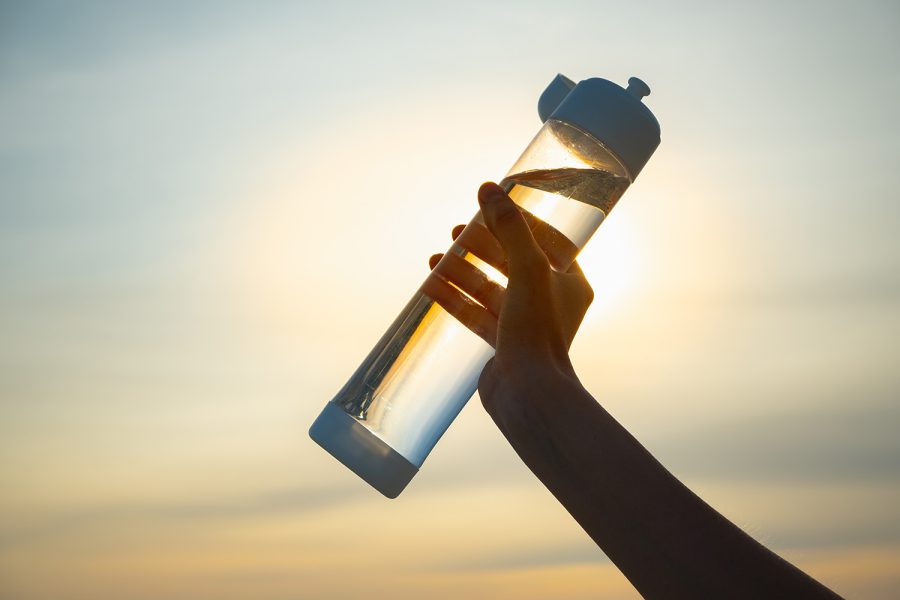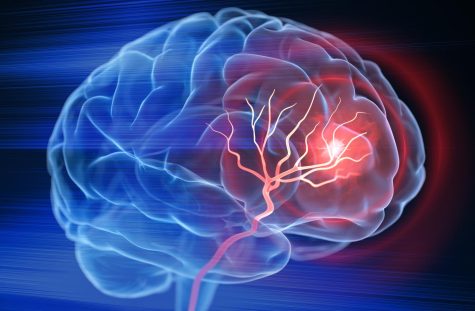Guest Opinion | The Doctor is in: How to stay hydrated
It is important to stay hydrated for your health.
March 6, 2022
The human body is made up of around 55-75 percent water. Most adults lose about 2.5-3 liters of water per day due to sweating, breathing, and filtering waste products through the kidneys and intestines.
By replenishing lost water, you’re helping regulate your core temperature and protecting your joints, brain, and spinal cord. Adequate hydration helps sustain vital organs such as the kidneys and heart. Symptoms of mild dehydration can lead to fatigue and headaches.
Chronic dehydration can increase the risk of developing constipation, kidney stones, and/or muscle damage. This article goes over the recommendation for water intake in adults, common factors that might warrant increased water intake, and lastly, presents tips to increase your hydration.
How much water should we drink daily?
For adults, the recommendation from The Institute of Medicine is around three to four liters a day. This includes the water contained in tea/juice and food. You consume an average of 20 percent of your water from the foods you eat. One key indicator of hydration status is urine color.
Your urine should be clear-pale yellow. Dark yellow, brown, or odorous urine are all signs that you could be dehydrated to some degree. Another indicator is thirst. Thirst is your body’s natural way of telling you it’s time to rehydrate.
Common factors that might require you to drink more water daily:
- Exercise – It has been shown that for every hour of endurance exercise you sweat one liter of water. However, this tends to vary greatly between individuals. It’s recommended to drink about half of a liter of water for every 1.1 pounds of water lost during exercise.
- Alcohol – Alcohol is a diuretic that causes you to have more dilute urine. This means you urinate more water in a certain period of time than normal for the same amount of non-alcoholic liquid consumed. Drinking water can help mitigate the dehydration associated with alcohol consumption and is effective in preventing hangovers the next day.
- Caffeine – Caffeine is also a diuretic. Consuming two to three cups of coffee can lead to increased urine output. However, these effects are reduced over time. It has been shown that consistent caffeine intake does not increase your risk of dehydration.
- Sickness – Vomiting and diarrhea are common causes of dehydration. It is critical that you stay hydrated as you fight off any acute illnesses.
Tips to help increase your hydration
- Carry a water bottle with you. It helps to even mark the fluid levels on your bottle so you can track your water intake throughout the day.
- If you don’t like water, flavor it with herbs/spices (e.g. Mint leaves, cinnamon, parsley), whole fruit (e.g. lemon, strawberries), non-sweetened artificial flavor enhancers, or try to eat more watery foods such as fruits/vegetables (e.g. melons, cucumbers, celery, etc.)
- Tie your water intake into your daily routine (e.g. every time you eat a meal/snack, walk to class, study, etc.)
- If you tend to consume more soda or juices, try to alternate between beverages with a bottle of water.
-Seth Weeks, First-year Medical Student, Class of 2025













